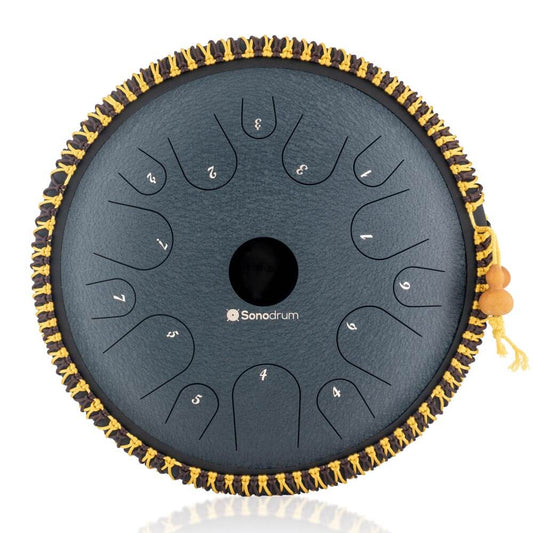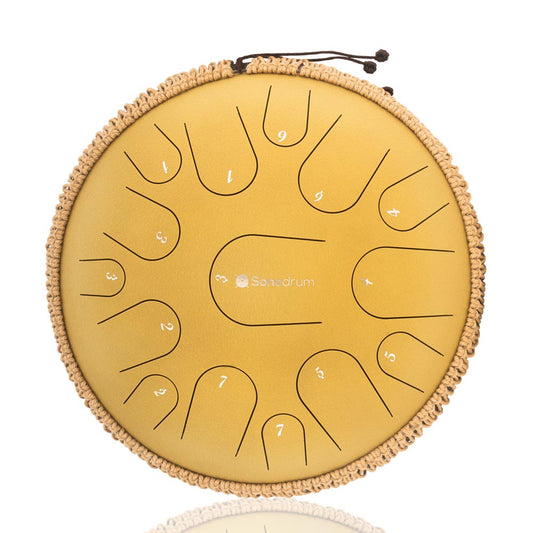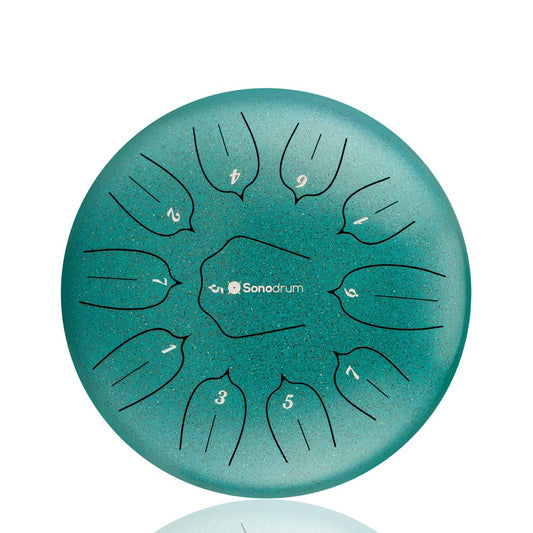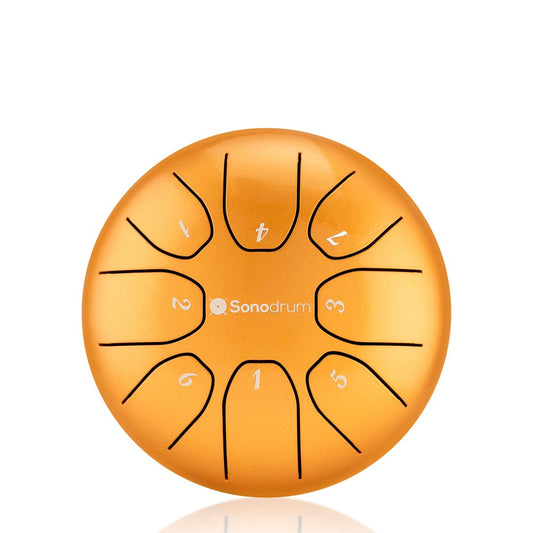Are you ready to dive into the mesmerizing world of drumming? Whether you're a seasoned percussionist or a curious novice, choosing the perfect drum is an exciting journey that requires careful consideration. In this comprehensive guide, we're here to accompany you on this rhythmic adventure.
The heartbeat of countless genres, cultures, and traditions, the drum is more than just musical instruments. The sheer diversity of drums, from traditional handcrafted wonders to modern electronic marvels, can be overwhelming. That's where this guide comes in. We will navigate the various aspects of buying drums, helping you make an informed decision that suits your musical aspirations, budget, and skill level.
This guide covers everything from understanding different drum types and their unique sounds to offering tips on where to find the best deals and how to care for your beloved instrument. So, whether you're dreaming of the thunderous boom of a big drum, the sharp snap of a snare, or the melodic tones of a handpan, let's embark on this journey to find this perfect instrument.
What is a Drum?
A drum is a percussion instrument that generates sound through the vibration of a membrane or the striking of a solid surface. This instrument comes in various forms and sizes, each contributing to a unique sound profile. They play a fundamental role in music, providing rhythm, depth, and emotional resonance. From the primal beats of tribal drums to the intricate patterns of a drum kit, this instrument has a rich history and cultural significance worldwide. Understanding the basics of a drum sets the stage for exploring the diverse range of drum types and their attributes when purchasing the perfect one.
Buying Drums - What To Look For?
The world of drums, including used drums for sale, is incredibly diverse, offering various options in terms of types, sizes, materials, and brands. There are several essential choices to make the best decision and purchase an instrument that aligns with your musical goals.
-
Drum Type: The type you choose largely depends on the music you intend to play. There's a vast difference between a traditional acoustic kit, an electronic set, and specialized options like handpans or steel drums for sale. Consider your musical genre, preferences, and space available when deciding on the type of instrument, especially when looking for drums on sale.
-
Size Matters: These instruments come in various sizes, and size can significantly impact the sound they produce. Larger drums typically produce deeper and more resonant tones, while smaller ones are known for their higher-pitched sounds. Think about the sound you want to achieve and whether you have enough space for this instrument.
-
Material: The material of this instrument influences not only its sound but also its durability. For example, drums can be wood, metal, or synthetic. Wooden drums often offer warm, organic tones, while metal drums can produce brighter, crisper sounds.
-
Skill Level: Your skill level as a drummer is essential in choosing the right one. Beginners may want to start with a more straightforward drum kit, while experienced drummers might opt for more complex setups. If you're looking for budget-friendly options, consider checking out drums on sale, as they can offer excellent value for your money.
-
Budget: Like any other purchase, your budget plays a crucial role in selecting a drum. This instrument’s prices can vary significantly, so it's essential to establish a budget range early in the buying process. Remember that quality drums are available at various prices, so you can find a great instrument that fits your budget.
-
Brand and Reputation: Consider choosing drums on sale from reputable brands known for their craftsmanship and quality. Research reviews and seek recommendations from experienced drummers or music teachers.
-
Try Before You Buy: Whenever possible, test out the drums you're interested in before deciding. Playing them in person lets you assess their feel, sound, and comfort, ensuring you find the perfect fit.
- Accessories and Add-ons: Don't forget to account for necessary accessories like drumsticks, drumheads, drum thrones, and hardware when budgeting for your purchase. These items are essential for a complete drumming setup.
By carefully evaluating these factors, you'll be well-prepared to decide when buying drums on sale.
Drum Instruments In Test - How Good Are Our Drums:

Before you embark on your drum-buying journey, knowing what's on the market, including used drums for sale, is essential. This section will showcase our instruments' exceptional quality and diversity. From the enchanting tones of handpans to the earthy rhythms of shaman drums, our products are carefully curated to meet the demands and expectations of drummers at all levels.
Handpan
Experience the ethereal and soothing sounds of handpans, a melodic percussion instrument that can transport you to another realm. Our handpans are crafted precisely, producing rich, harmonious tones that resonate with your soul.
Tongue Drum
These compact and versatile instruments offer enchanting tones. Whether you're a beginner or a professional, our tongue drums provide an accessible yet expressive way to create captivating melodies.
Lotus Drum
These percussive wonders are known for their melodic resonance and portability. Crafted from high-quality steel, our steel drum for sale delivers a mesmerizing sound experience.
Hand Drum
Explore the ancient rhythms of hand drum, ideal for drum circles and cultural exploration. These hand instruments are made with durability and playability in mind, inviting you to connect with rhythm on a primal level.
Shaman Drum
Immerse yourself in the mystic and spiritual world of shamanic drumming. Our shaman drums along with our steel pans are thoughtfully designed to channel the ancient power of these sacred instruments.
Meaning Of Drums in Music:
In the symphony of sounds that make up music, drums occupy a unique and indispensable place. Beyond their rhythmic function, drums have profound meaning in the language of music. They are the heartbeat, the pulse that drives melodies and lyrics forward. This instrument provides the backbone of a song, setting the pace and creating the framework upon which all other instruments and vocals build their expression.
Drums have been integral to human culture for centuries, serving as instruments of sonic beauty and vehicles of cultural expression and communication. In various traditions worldwide, this instrument plays a central role in rituals, celebrations, and storytelling, transcending mere musicality. They evoke emotions, convey messages, and ignite the spirit of both musicians and listeners.
Understanding the meaning of drums in music helps us appreciate their significance when choosing one to play or adding their magic to our compositions. Whether you seek the primal energy of a big drum, the intricate rhythms of a snare, or the meditative tones of a handpan, recognizing this instrument’s deep musical meaning enriches our connection to this timeless art form.
Proper Care of the Drum
Once you've found this perfect instrument, ensuring its longevity and optimal performance is crucial. Proper care of your drum is an act of respect for this beautiful instrument and an investment in its enduring sound quality.
-
Cleaning: Regularly clean this instrument with a soft, damp cloth to remove dust and dirt. Be gentle, especially with sensitive surfaces like handpans or steel drums for sale, to avoid scratches. Avoid harsh chemicals that might damage the finish.
-
Storage: Store this instrument in a cool, dry place when not in use. Extreme temperatures and humidity can impact the drum's materials and tuning. A padded case or bag is an excellent investment for protection during storage and transport.
-
Tuning: Depending on your drum type, it may require occasional tuning. Consult the manufacturer's guidelines for proper tuning techniques. Handpans, carbon steel pans and steel drums for sale, for instance, may need careful adjustment to maintain their sweet tones.
-
Protection: Consider adding a drumhead or cover to protect your instrument’s surface from accidental damage. This is especially important for drums with exposed membranes like djembes or congas.
-
Regular Inspection: Periodically inspect this instrument for signs of wear or damage. Look for loose hardware, fraying drumheads, or cracks in the shell. Address these problems promptly to prevent additional damage.
- Maintenance: If your drum has intricate mechanical components, such as those found in electronic drum kits, follow the manufacturer's instructions carefully. Lubricate moving parts, replace worn-out components and keep the electrical connections clean.
Visit Sonodrum to explore a wide range of drums for sale and discover the perfect instrument to elevate your musical experience.
Advantages of Drum Instruments
Drum instruments offer a plethora of advantages beyond their sheer musical appeal. Understanding these advantages can help you enjoy why investing in the right drum is not just about entertainment but also personal enrichment.
-
Stress Relief: Playing drums can be a powerful stress reliever. The rhythmic patterns and physicality of drumming help release endorphins, reducing stress and promoting relaxation and well-being.
-
Enhanced Coordination: Drumming requires coordination between both hands and often feet, improving motor skills and hand-eye coordination. Regular practice of this instrument can enhance your overall physical dexterity.
-
Cognitive Benefits: Drumming engages various brain parts, stimulating creativity, problem-solving, and memory. It can also enhance concentration and focus, making it a beneficial activity for individuals of all ages.
-
Emotional Expression: The drum for sale allows for emotional expression uniquely and powerfully. Whether you're channeling joy, anger, or sadness, the drum's dynamic nature will enable you to convey your emotions through beats and rhythms.
- Community and Connection: Drumming often brings people together. It's a communal activity that fosters a sense of belonging and unity. Whether you're part of a drum circle or a band, the shared drumming experience can create strong bonds with others.
Incorporating these advantages into your life is just one of the many reasons to consider buying drums for sale.

Types of Drum Instruments
Understanding the different drum types is crucial when finding the perfect one. Here, we'll explore five distinct categories to help you make an informed choice in your drum-buying journey.
Snare Drum
The snare drum for sale is renowned for its sharp and crisp sound. Often found in drum kits, it plays a fundamental role in providing the characteristic "snap" in various music genres, including rock, pop, and marching bands. When purchasing a snare drum, consider factors like shell material, size, and snare wire quality, as these elements greatly affect the instrument's tone and responsiveness.
Kids Drum
Introducing children to the world of music and rhythm is a delightful experience, and kids' drums are the perfect starting point. These scaled-down drums are designed to be approachable and safe for young percussionists. Look for durable materials, vibrant designs, and size-appropriate kits to nurture your child's budding musical talent.
Big Drum
Also known as bass or tank drums, big instruments produce deep, resonant tones that lay the foundation for many music genres, from orchestral compositions to rock and metal bands. When shopping for a big one, focus on the drumhead material, size, and the drum's ability to project low frequencies. The choice of mallets or beaters can also significantly impact the sound.
Black Drum
Often associated with African and Caribbean music traditions, the black drum is a unique and visually striking instrument. Crafted from carved wood and adorned with intricate designs, these drums offer rich, warm tones. When considering a black drum, pay attention to the craftsmanship, wood type, and size, as these factors influence its sonic characteristics and aesthetics.
Choosing the Right Drum Instruments
In the vibrant world of percussion, selecting the right drum instrument, especially when exploring options like "used drums for sale," is a pivotal decision that can significantly impact your musical journey. To make an informed choice, consider these five essential factors:
-
Drum Type: The first step is identifying the right type that resonates with your musical interests. Are you drawn to the rhythmic complexity of a snare drum, the booming resonance of a big drum, or the melodic tones of a handpan? Understanding the purpose and sound profile of each drum type is crucial.
-
Skill Level: Your expertise plays a vital role in choosing the right drum. If you're a beginner, opt for an instrument that is beginner-friendly and forgiving of learning curves. Seasoned drummers may seek more specialized or advanced drums to match their skill set.
-
Budget: Drums come in a wide range of price points. Define your budget early in the process to narrow down your options. Remember that quality often correlates with price, but excellent choices are available for various budgets.
-
Sound Preferences: Each instrument has a unique sound character. Consider the tonal qualities, timbre, and resonance you desire. Experiment with different drums or listen to online demonstrations to find the sound that resonates with you.
- Intended Use: Consider where and how you plan to use your drum. Are you performing on stage, participating in drum circles, or looking for a quiet practice option? Consider portability, acoustic or electronic options, and the context in which you'll be playing.
By considering these factors, you'll be well on your way to choosing this perfect used drums for sale that aligns with your musical goals and preferences.
Conclusion
Music is a universal language in the symphony of life, and drums are its heartbeat. Throughout this comprehensive guide, we've explored the diverse and captivating world of drumming, providing you with the knowledge and insights needed to make an informed purchase decision.
We've equipped you with practical tips on where to find the best deals, how to evaluate quality, and the importance of proper care and maintenance. Whether you're drawn to the resonant tones of a handpan, the traditional rhythms of a shaman drum, or the dynamic versatility of a snare drum, you now possess the tools to make a choice that resonates with your musical aspirations.
At Sonodrum, we understand the profound connection between drummers and their instruments. We hope this guide has empowered you to select this perfect instrument for your needs and preferences. As you embark on this melodic journey, let the rhythm flow and the beats come alive with your new drum from Sonodrum.
FAQs
What is a drum?
A drum is a percussion instrument that produces sound through the vibration of a stretched membrane (often called a drumhead) or the striking of a solid surface. Drums come in diverse shapes, sizes, and materials, each contributing to a unique sound profile. They are an essential element in music, providing rhythm, beat, and depth to compositions.
What types of drums are there?
A wide array of drum types include snare drums, bass drums, toms, congas, bongos, djembes, handpans, hand drums, steel tongue drums, and more. Each type has its distinct design, sound, and cultural significance, making the world of drums rich and diverse.
How do you play a drum?
Playing this instrument involves striking or tapping it with hands, mallets, or drumsticks to produce sound. The technique varies depending on the type of drum and the desired sound. Drumming can be simple or complex, depending on the style and skill level of the drummer.
What genres of music is the drum used for?
Drums are incredibly versatile and are used in virtually all music genres worldwide. From rock and jazz to classical, world music, and traditional cultural ceremonies, drums play a vital role in shaping the rhythm and feel of music.
Can I learn to play drums even if I am a beginner?
Absolutely! Drumming is accessible to beginners of all ages. You can develop your drumming skills, starting with primary rhythms and gradually progressing. Whether you aspire to be a professional drummer or simply enjoy it as a hobby, anyone can learn to play drums.
What accessories do I need for drumming?
Essential drumming accessories include drumsticks or mallets, a drum throne (seat), a metronome for timing, and ear protection if playing at high volumes. Depending on the type, additional accessories like drumheads, tuning keys, and stands may be required.
Can I do drumming as a hobby, or are there professional career opportunities?
Drumming can be both a fulfilling hobby and a professional career. Many people enjoy drumming as a recreational activity, while others pursue careers as drummers, percussionists, or music educators. The choice depends on your passion, commitment, and goals.
How do I care for and maintain my drum?
Caring for your drum involves:
- Keeping it clean
- Storing it in a suitable environment (away from extreme temperatures and humidity)
- Regularly inspecting for any signs of wear or damage
Maintenance may include changing drumheads, tuning, and occasional repairs. Proper care ensures the longevity and optimal performance of your instrument.




